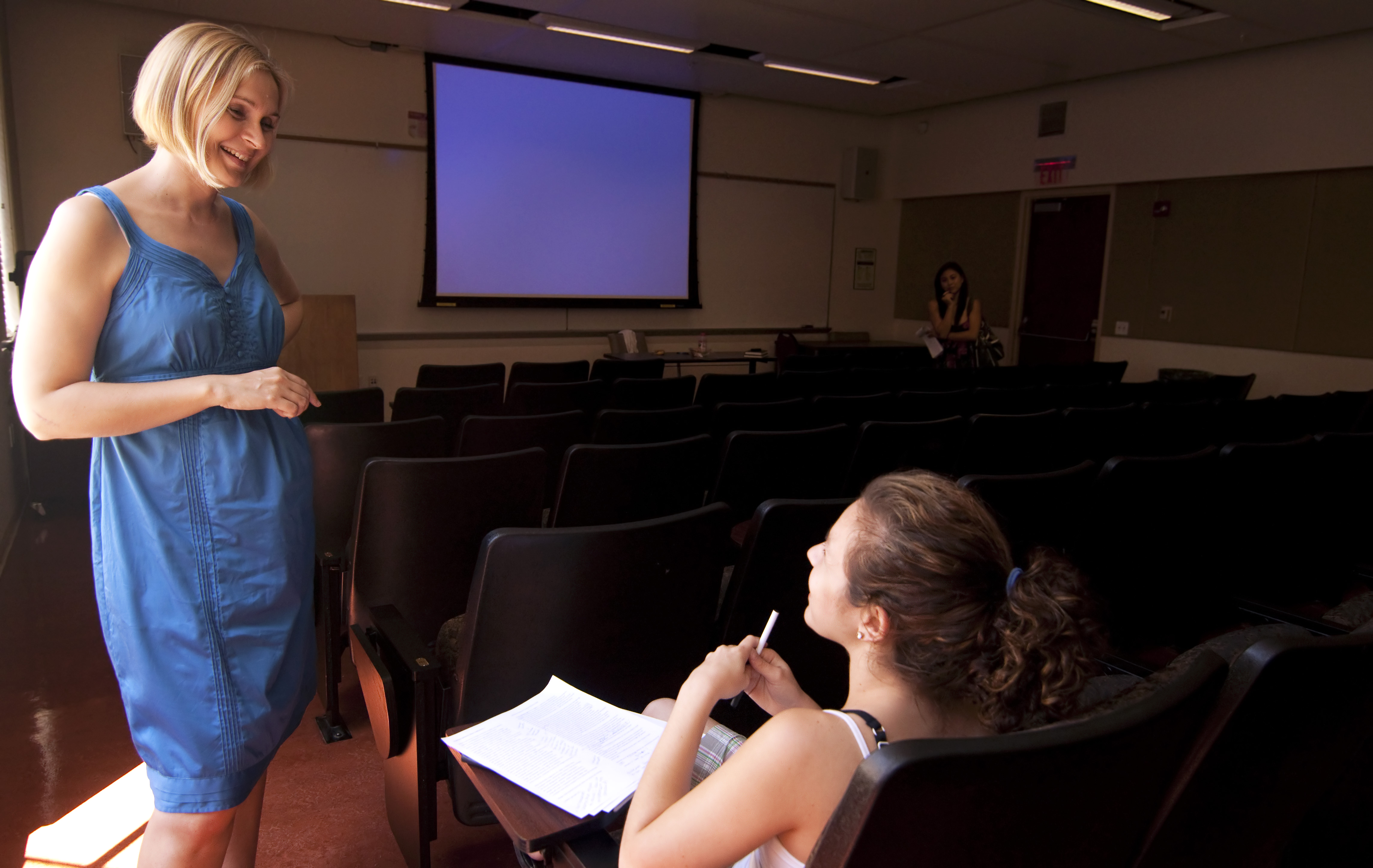Three times a week for the past month, Ivett Guntersdorfer found herself standing in front of the thirty-odd undergraduate students enrolled in German 59, lecturing on the role of the Holocaust in film and literature. A graduate student in the Department of Germanic Languages, Guntersdorfer is not currently a professor, though she hopes to achieve this position in the future.
The Collegium of University Teaching Fellows, which all UCLA teaching fellows, including Guntersdorfer, is a member of, is a UCLA program that gives more advanced graduate students the opportunity to construct a curriculum on a chosen topic in their field of study and teach the course to undergraduate students.
While employing teaching fellows to instruct classes in place of professors has helped loosen the university’s increasingly tight purse strings, the main purpose of this capstone program is to develop graduate students’ skills as they hope to enter the academic sphere and train them in becoming future faculty.
As a teaching fellow, Guntersdorfer differs from a teaching assistant in that she has already completed the coursework and comprehensive exams involved with advancing to doctorate candidacy.
Though she already had experience as a TA during the school year, Guntersdorfer said that summer classes are more intense and condensed, which forces her to be more organized and more capable.
“You have to earn the respect ““ when you’re a professor, you don’t have to fight for it,” Guntersdorfer said, adding that one challenge she faced was coming across as a voice of authority.
Rick Miller, a graduate student in geography and teaching fellow for the Geography 156 class that took place during Session A this summer, echoes Guntersdorfer’s sentiment.
“They are very different things,” Miller said about the distinction between being a TA and a teaching fellow. “When you’re teaching with another professor … the format is already set. Now, it’s essentially your own course.”
Miller appreciated the creative freedom and responsibility the experience provided. With the ongoing budget cuts all across campus, funding for graduate students has become increasingly scarce.
“(The Collegium of University Teaching Fellows) provides a great opportunity for the next generation of faculty,” said Miller. “It offers graduate students one of the few chances of building up a repertoire.”
Miller said that there have been drawbacks, adding that he is still learning how to best put a course together and lecture effectively. However, he said he believes that despite the learning curve, the overall outcome is a positive one.
“It has been a trade-off between experience and experimentation,” Miller said. “What (undergraduate students) are getting from having a teaching fellow are exuberance, fresh ideas and a great deal of energy.”
In the case of Guntersdorfer, the smaller age gap between students and instructors can also serve as a point in favor of teaching fellows. They are younger and often share common interests with their students, giving them a greater insight into their pupils that full-fledged professors may not have access to.
“I can understand their issues. I know what they’re doing, what music they listen to,” Guntersdorfer said.
Bianca Shulaker, a fourth-year environmental studies student enrolled in German 59, said she did not realize that her instructor was not a professor, although she said Guntersdorfer more of an interest in her students than other professors.
“She’s very knowledgeable and very aware of the subject and the context,” Shulaker said. “The accessibility is 110 percent there.”
Guntersdorfer has made an effort to get to know her students individually, holding extra office hours and arranging one-on-one meetings with each student. Guntersdorfer also tries to make her class democratic, giving students a greater say in the discussion topics.
According to Guntersdorfer, increased student-instructor interaction is one of the benefits behind the mentality of the summer teaching fellows program.
“It is a win-win across the board,” Miller said. “Departments can offer diversity in courses over the summer. Undergraduates can take things they usually can’t during the year and teaching fellows provide them a new perspective.”
With contributing reports from Kattie Lam, Bruin senior staff.
